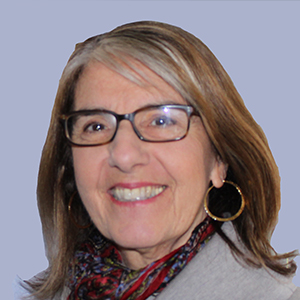Efforts to reconcile SSPX
Attempts to reconcile the Society of St Pius X (SSPX) are continuing, the Prefect of the Congregation for the Doctrine of the Faith (CDF), Cardinal Gerhard Müller, has assured the German Catholic internet portal katholisch.de.
In the ongoing talks with the Society, the CDF and the Ecclesia Dei Commission had always pointed out that in essence the SSPX’s chief criticism was not directed against the Second Vatican Council “but against certain post-conciliar developments”.
The growth of such post-conciliar developments revealed a “certain shallowness” as far as the liturgy was concerned, but it could not be blamed on the Council’s Constitution on the Sacred Liturgy, Cardinal Müller pointed out. And as far as the Declaration of Religious Liberty was concerned, which the SSPX has always refused to recognise, Cardinal Müller said “content-wise, the Declaration is not diametrically opposed to the Church’s nineteenth-century heritage”. He hoped those responsible in the SSPX would soon “risk the step of once again returning fully to the Church”.
Resettlement deal welcomed
Catholic leaders have welcomed the Australian Government’s refugee resettlement deal with the US, even though there are concerns that President-elect Donald Trump might renege on it once he assumes power in January. The Director of the Australian Catholic Migrant and Refugee Office (ACMRO), Fr Maurizio Pettena, expressed gratitude to the US for accepting those who had been awaiting settlement after many years of detention. “ACMRO, however, is disappointed that Australia did not take the step of settling at least some of those on Manus Island or Nauru in Australia, showing other nations that we are accepting our fair share of the current refugee crisis,” Fr Pettena said.
The Catholic Alliance for People Seeking Asylum (CAPSA) welcomed the announcement, saying it provided hope at last for the 1,600 people seeking asylum on Manus Island and Nauru. CAPSA chairwoman Julie Edwards (below left), said: “It has been unthinkable that people have been left in these conditions. This has now been in part relieved by this new hope of a safe and secure future.” Prime Minister Malcolm Turnbull expressed confidence the deal would be upheld by the incoming US Administration.
Belgian labour authorities have accused a historic monastery in Ghent of human trafficking, illegal work practices and forgery for making foreign novices work within its walls without pay. They said the novices, 18 from Africa and one from Vietnam, worked in the Augustinian monastery or as kitchen help in a modern conference centre that the monastery has opened in an unused part of its seventeenth-century building in the city centre. Lawyers for the Monastery of St Steven said the authorities had no idea of the ora et labora tradition of Christian monasteries. “This deep-rooted tradition is apparently now being lumped together with human trafficking and fraud,” they said in a statement. The local labour office said some foreign novices did join the order and stay, but most left and found themselves unemployed and without proper documents. It said that a total of 27 novices, including those who stayed, were considered non-declared workers. “All novice candidates are screened to make sure they are coming here to train for the priesthood,” a monastery lawyer told Belgian television. “If people give that impression but actually have other ideas in mind, we can’t determine that.”
Secret Marcos reburial
Church leaders in the Philippines criticised the secret burial at the Heroes’ Cemetery of former President Ferdinand Marcos, the dictator ousted in the 1986 revolution. “This burial is dishonourable because they hid it from the people for fear of the people. It is characteristic of the Marcos rule – secretive,” said Manila Auxiliary Bishop Broderick Pabillo.
Marcos died in exile in 1989 in Hawaii. His remains have been kept in a refrigerated glass-panelled crypt displayed in his home city in Batac.
CBCP News, the news agency of the bishops’ conference, reported that his remains were flown secretly from Ilocos Norte province on 18 November and given military honours before burial at the cemetery.
The second round of talks between the Venezuelan Government and opposition leaders took place on 11 and 12 November, and defined topics that will be discussed going forward. Nicolás Maduro’s Government also freed another opposition activist, Popular Will party member Rosmit Mantilla, on 17 November as a sign of good will for the Vatican-brokered negotiations. Mr Mantilla had been imprisoned since 2014, when he was accused of helping organise anti-government protests that turned violent. The second session of talks defined five topics that negotiators will discuss in future sessions: elections in the Amazonas region, the autonomy and constitutionality of the opposition-controlled National Assembly, selection of new members of the National Electoral Commission, political prisoners, and entry of food and medical supplies to the country.
Bishops’ genocide apology
Catholic bishops in Rwanda have issued an apology for the role some individual clergy and members played in the 1994 genocide, which killed nearly one million Tutsis and moderate Hutus. On Sunday, the announcement by the Church’s nine bishops was read out in all churches, as Catholics marked the end of the Year of Mercy. In the pastoral letter, Bishop Philippe Rukamba, President of the Rwandan bishops’ conference, said although the Catholic Church did not send anyone to kill, it had still apologised because some church members and clerics played a role in the genocide.
Ethics in Action, an interreligious initiative aimed at promoting sustainable development, has been launched at the Vatican. The multi-faith organisation Religions for Peace (RfP) was a co-sponsor. Mgr Marcelo Sanchez Sorondo, Chancellor of the Pontifical Academy of Social Sciences, opened the first assembly with an address drawing extensively on Pope Francis’ encyclical Laudato si’. Attendees included Cardinal John Onaiyekan, Archbishop of Abuja and co-moderator of RfP, Dr Mohammad al-Samnak, Secretary General of the Christian-Muslim Committee for Dialogue and co-president of RfP, and Christina Lee Brown (above), an RfP trustee and founder of the Institute for Healthy Air, Water and Soil.
24 November 2016, The Tablet
News Briefing: global
 Loading ...
Loading ...
Get Instant Access
Subscribe to The Tablet for just £7.99
Subscribe today to take advantage of our introductory offers and enjoy 30 days' access for just £7.99



